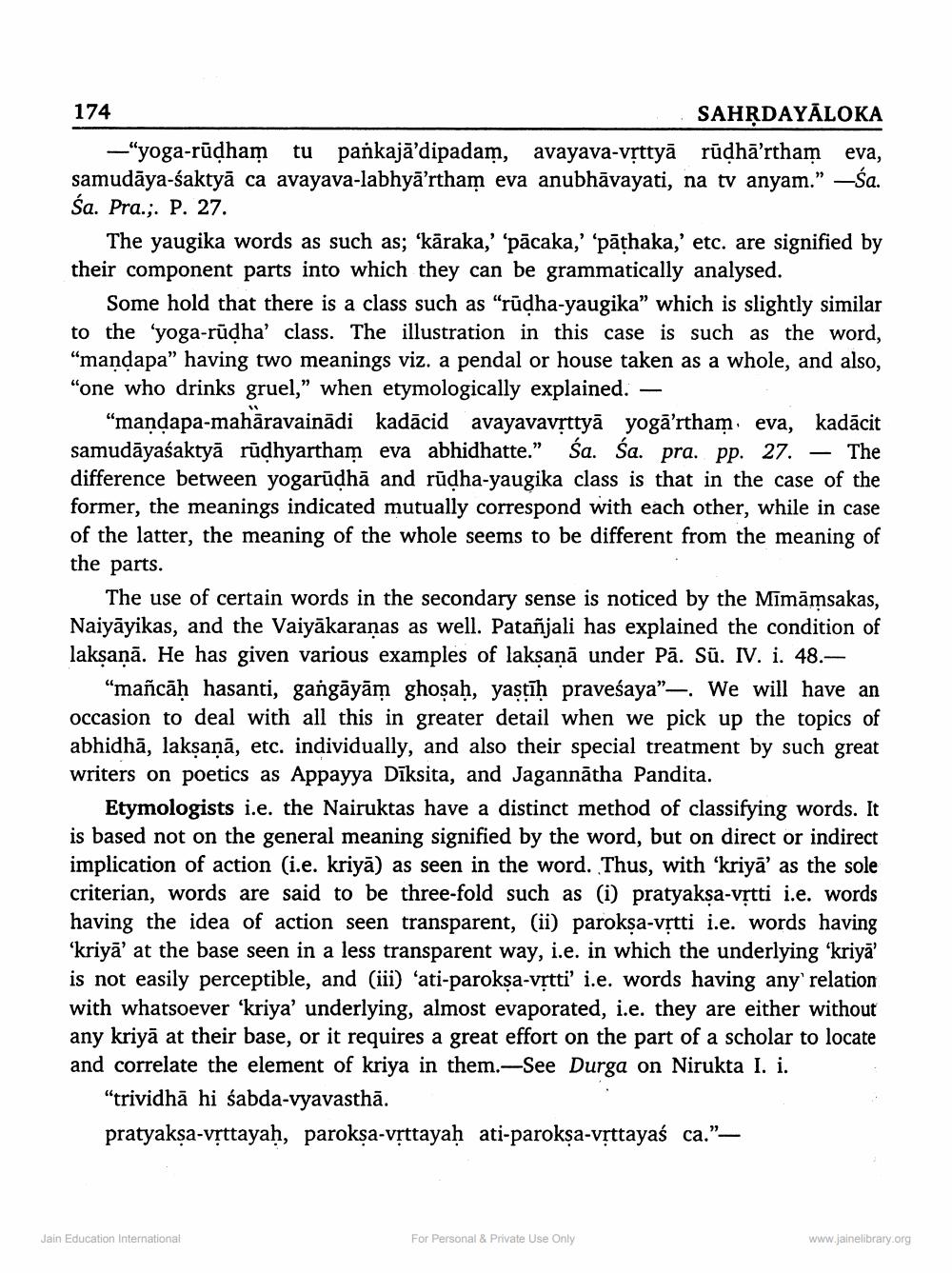________________
174
SAHRDAYĀLOKA -"yoga-rūdham tu pankajā'dipadam, avayava-vrttyā rūdhā'rtham eva,
aktyā ca avayava-labhyā'rtham eva anubhāvayati, na tv anyam.” —Śa. Śa. Pra.;. P. 27.
The yaugika words as such as; 'kāraka,' 'pācaka,' 'pāthaka,' etc. are signified by their component parts into which they can be grammatically analysed.
Some hold that there is a class such as "rūdha-yaugika” which is slightly similar to the 'yoga-rūdha' class. The illustration in this case is such as the word, "mandapa” having two meanings viz. a pendal or house taken as a whole, and also, "one who drinks gruel,” when etymologically explained. —
"mandapa-mahāravainādi kadācid avayavavrttyā yogā’rthameva, kadācit samudāyaśaktyā rūdhyartham eva abhidhatte." Sa. Sa. pra. pp. 27. – The difference between yogarūdhā and rūdha-yaugika class is that in the case of the former, the meanings indicated mutually correspond with each other, while in case of the latter, the meaning of the whole seems to be different from the meaning of the parts.
The use of certain words in the secondary sense is noticed by the Mimāņsakas, Naiyāyikas, and the Vaiyākaranas as well. Patañjali has explained the condition of lakṣaṇā. He has given various examples of lakṣaṇā under Pā. Sü. IV. i. 48.
"mancāh hasanti, gangāyām ghosah, yastīh praveśaya" - We will have an occasion to deal with all this in greater detail when we pick up the topics of abhidhā, lakṣaṇā, etc. individually, and also their special treatment by such great writers on poetics as Appayya Dīksita, and Jagannātha Pandita.
Etymologists i.e. the Nairuktas have a distinct method of classifying words. It is based not on the general meaning signified by the word, but on direct or indirect implication of action (i.e. kriyā) as seen in the word. Thus, with 'kriya' as the sole criterian, words are said to be three-fold such as (i) pratyaksa-vrtti i.e. words having the idea of action seen transparent, (ii) paroksa-vrtti i.e. words having ‘kriyā' at the base seen in a less transparent way, i.e. in which the underlying ‘kriyā is not easily perceptible, and (iii) 'ati-paroksa-vịtti' i.e. words having any' relation with whatsoever ‘kriya' underlying, almost evaporated, i.e. they are either without any kriyā at their base, or it requires a great effort on the part of a scholar to locate and correlate the element of kriya in them.-See Durga on Nirukta I. i.
"trividhā hi śabda-vyavasthā. pratyakşa-vịttayaḥ, paroksa-výttayaḥ ati-parokșa-vrttayaś ca.”—
Jain Education International
For Personal & Private Use Only
www.jainelibrary.org




